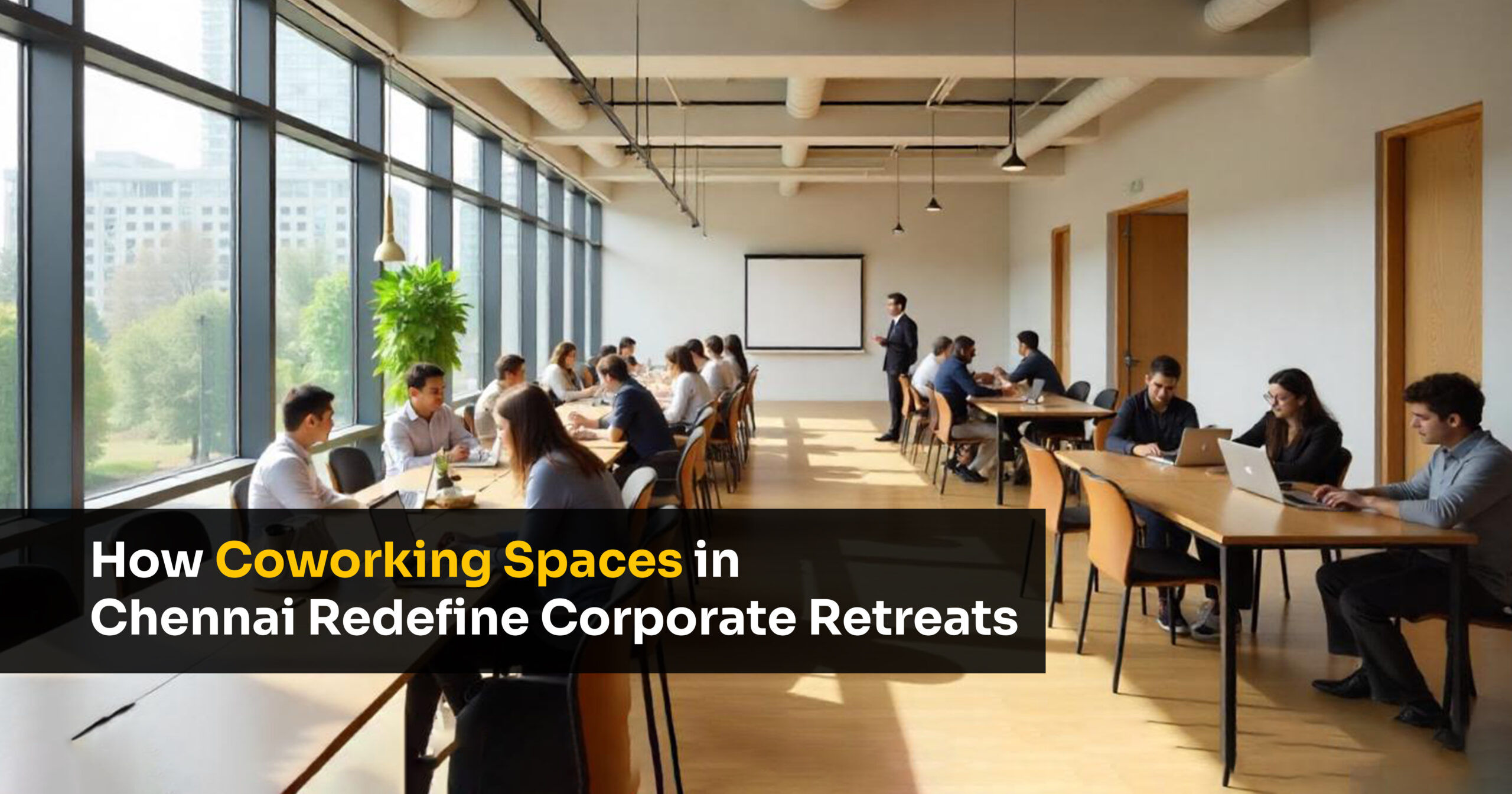We live in an era where technology underpins nearly every facet of work, the private office—a staple of coworking spaces—stands as a sanctuary of focus and productivity. As of March 26, 2025, these spaces are equipped with high-speed Wi-Fi, smart lighting, and cloud-connected tools, catering to hybrid teams, startups, and enterprises alike. Yet, this reliance on technology raises a critical question: what happens when the power goes out or the internet fails? Could a private office, nestled within the collaborative ecosystem of a coworking space, survive a tech blackout? This article imagines such a scenario, exploring its implications from operational, technological, human, and strategic perspectives, and offering actionable tips to build resilience in a world where connectivity is no longer guaranteed.
The Operational Perspective: A Sudden Standstill
A tech blackout—defined here as a complete loss of electricity and internet—would bring a private office’s operations to an abrupt halt. In 2025, coworking spaces are designed for efficiency, with private offices serving as hubs for meetings, coding, and strategic planning. Without power, the basics vanish: lights dim, laptops die, and climate control falters. Without Wi-Fi, cloud-based workflows—think Google Workspace, Slack, or CRM platforms—grind to a stop. A 2024 OfficeRnD report found that 85% of coworking users rely on digital tools for daily tasks, underscoring the depth of this dependency.
Operationally, the impact varies by business type. A design firm might lose access to rendering software mid-project, while a consultancy could miss a critical client call hosted on Zoom. Even short disruptions matter: a 2023 IBM study estimated that unplanned outages cost businesses $260,000 per hour on average, a figure likely higher in 2025 with inflation. For private office tenants, the immediate challenge is continuity—how to maintain momentum when the tech backbone snaps.
Yet, operations need not collapse entirely. Analog alternatives, though rare in 2025, can bridge the gap. Paper-based planning, whiteboards, and offline brainstorming could sustain activity, albeit at a slower pace. The key lies in preparation: offices with contingency workflows—pre-downloaded files, physical backups—fare better than those caught unprepared. Operationally, a tech blackout tests adaptability, revealing the fragility of over-reliance on digital infrastructure.
The Technological Perspective: Exposed Vulnerabilities
From a technological standpoint, a blackout exposes the vulnerabilities baked into modern private offices. Coworking spaces in 2025 boast cutting-edge systems: AI-driven desk bookings, smart locks, and IoT-enabled environments. These innovations, while efficient, are powerless without electricity. A 2024 Twilio survey noted that 89% of business leaders prioritize tech personalization, yet few account for its Achilles’ heel—grid dependency. When the power fails, so does the ecosystem: doors won’t unlock, occupancy sensors go dark, and virtual office mail alerts stall.
Wi-Fi loss compounds the issue. In a private office, internet downtime severs access to cloud servers, rendering SaaS platforms unusable. A 2025 Spacebring analysis found that 70% of coworking spaces upgraded connectivity post-COVID, yet redundancy remains rare. Single-point failures—like a downed router—can cripple an entire floor. Battery-powered devices offer temporary relief, but laptops and phones, averaging 6-8 hours of charge, can’t sustain a prolonged outage without backup power.
The technological lens highlights a paradox: the more advanced the office, the more vulnerable it becomes. Resilience requires a rethink—offline-capable tools (e.g., local software), portable chargers, or even solar-powered hubs. Without these, a private office risks becoming a high-tech shell, unable to function when the grid falters.
The Human Perspective: Stress, Adaptation, and Morale
Humans, not just systems, feel the blackout’s sting. In 2025, coworking tenants—freelancers, remote workers, small teams—rely on private offices for structure in a hybrid world. A tech failure disrupts this rhythm, triggering stress and frustration. A 2024 Future Forum survey found that 78% of employees value in-office days for collaboration, often in private settings. Without power or Wi-Fi, that purpose evaporates: meetings cancel, deadlines loom, and isolation creeps in.
Adaptation varies by personality. Some thrive in chaos, pivoting to pen-and-paper tasks or impromptu team huddles. Others falter, paralyzed by the loss of digital crutches. A 2018 Leesman study, still relevant in 2025, showed that 40% of workers struggle with focus in disrupted environments—a figure likely higher in tech-heavy private offices. Morale takes a hit too; a dark, disconnected space feels less like a workplace and more like a limbo, eroding the community vibe of coworking promises.
Yet, humans are resilient. A blackout could spark creativity—unplugged brainstorming, face-to-face problem-solving—unseen in Wi-Fi’s glow. The human perspective underscores a dual need: tools to weather the storm and a culture that embraces adaptability. Without both, a private office risks losing its people, not just its power.
The Strategic Perspective: Risk and Opportunity
Strategically, a tech blackout forces enterprises and coworking operators to confront risk head-on. In 2025, with climate change driving extreme weather—hurricanes, heatwaves—and aging grids buckling, outages are no longer hypothetical. The U.S. Energy Information Administration reported 1.2 billion outage hours in 2023, a trend worsening with infrastructure strain. For private office tenants, this is a business continuity issue: a day offline could mean lost revenue, missed pitches, or eroded trust.
Operators face a branding challenge too. Coworking spaces market reliability—24/7 access, seamless tech—as core value. A blackout undermines this, pushing tenants to competitors with better contingency plans. A 2024 GCUC report noted that 62% of spaces adopted sustainability measures, but few prioritize blackout resilience, leaving a strategic gap.
Conversely, this is an opportunity. Private offices that survive off-grid scenarios gain a competitive edge, signaling preparedness in an unpredictable world. Operators could differentiate with backup generators or offline workflows, while tenants could leverage resilience as a selling point—proof they deliver no matter the odds. Strategically, a blackout isn’t just a threat; it’s a chance to innovate.
Preparation Tips: Building a Resilient Private Office
Imagining a tech blackout reveals vulnerabilities, but preparation can turn survival into strength. Here are actionable tips to ensure your private office thrives off the grid in 2025:
1. Power Up Offline: Invest in portable solutions—solar chargers ($50-$200), power banks (10,000-20,000 mAh)—to keep devices alive. A small generator ($500-$1,000) could power essentials like lights and a router for hours. Pre-charge critical gear daily.
2. Go Analog: Stock whiteboards, notebooks, and printed schedules as backups. Pre-download key files—contracts, presentations—to laptops or USB drives. A 2024 Deskbird study found 45% of workers miss fixed tools; analog fills that gap.
3. Redundant Connectivity: Use a mobile hotspot (e.g., 5G plans from Verizon, $30/month) as a Wi-Fi fallback. Cache offline versions of tools like Notion or Microsoft Office. Test redundancy monthly to ensure uptime.
4. Light the Way: Keep LED lanterns ($20-$40) or headlamps in the office—battery-powered, long-lasting. Natural light works too; position desks near windows, a perk 70% of coworking users value per Gensler 2024 data.
5. Team Protocols: Train staff on blackout drills—shift to manual tasks, prioritize offline work. Assign a “resilience lead” to manage chaos. A 2023 Spacewell report showed 70% adapt better with clear guidance.
6. Operator Partnership: Push coworking providers for backup plans—generators, offline access keys. Spaces with sustainability creds (62% per GCUC 2024) may already lean into resilience; ask about outage policies.
7. Client Communication: Prep a manual outreach plan—phone calls, pre-written emails on charged devices—to reassure clients during downtime. Transparency builds trust when tech fails.
The Bigger Picture: Resilience in 2025 and Beyond
A day without power or Wi-Fi in a private office isn’t just a thought experiment—it’s a plausible scenario in 2025. Climate volatility, grid strain, and tech saturation make blackouts a when, not an if. JLL’s 2030 forecast of 30% flexible office space assumes reliability, but resilience is the missing piece. Private offices that weather this storm emerge stronger, blending coworking’s flexibility with a fortress-like readiness.
For tenants, preparation is empowerment—maintaining productivity, morale, and client trust. For operators, it’s a market differentiator, turning a liability into a feature. A 2025 Twilio insight—89% of leaders see personalization as key—extends here: a resilient office is a personalized one, tailored to survive the unexpected.
Thriving Off the Grid
Could your private office survive a tech blackout?
The answer hinges on foresight. Operationally, it demands analog lifelines; technologically, it exposes over-reliance; humanly, it tests adaptability; strategically, it offers a chance to shine. In a tech-dependent world, resilience isn’t optional—it’s essential. By preparing now, private offices can transform a blackout from a crisis into a proving ground, redefining what it means to work in a coworking space. The grid may fail, but your office doesn’t have to.




